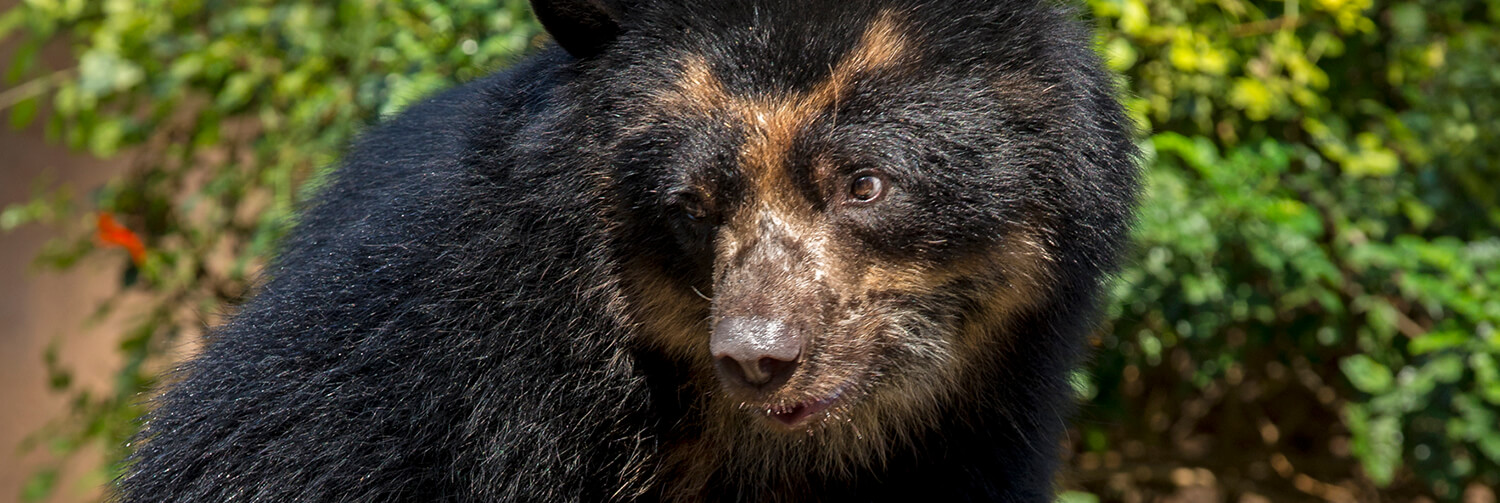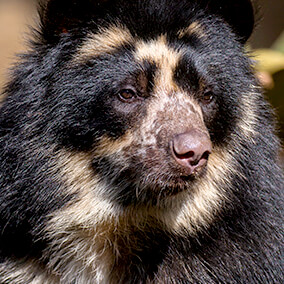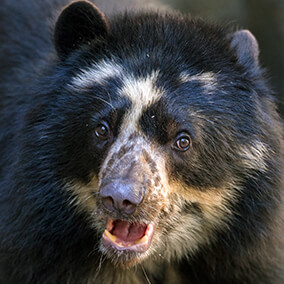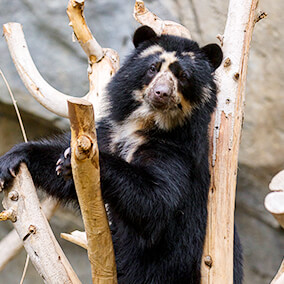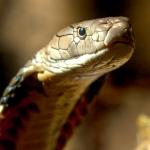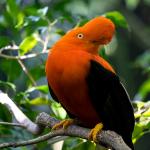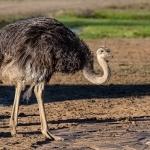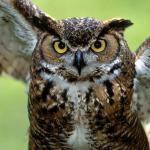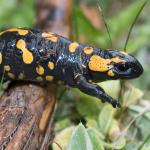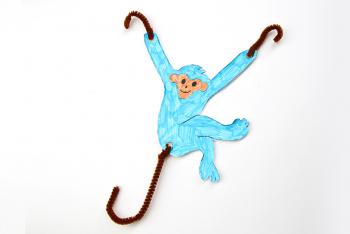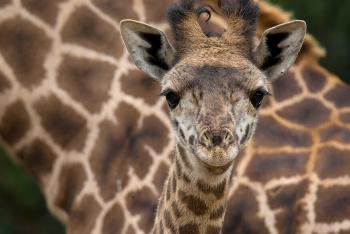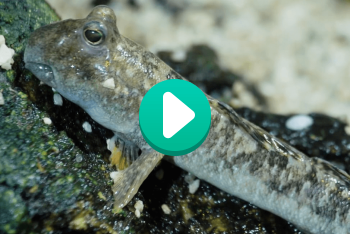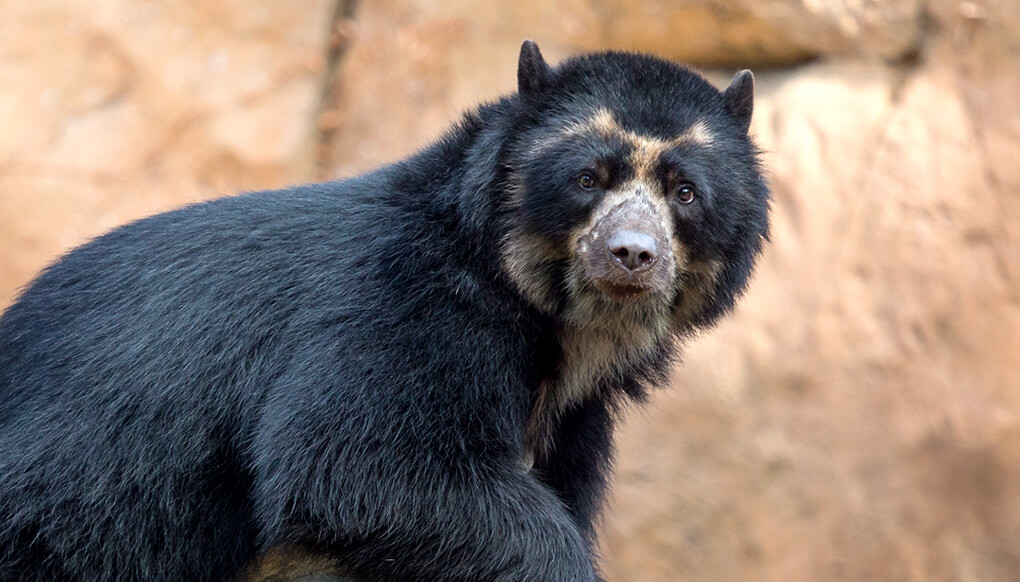
Andean bear
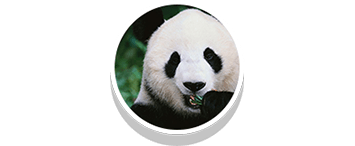
Mammals


Threatened
facts
Only around 5 percent of the Andean bear's diet is meat, usually rodents and insects. They mostly eat fruit, palm fronds, and insects
description
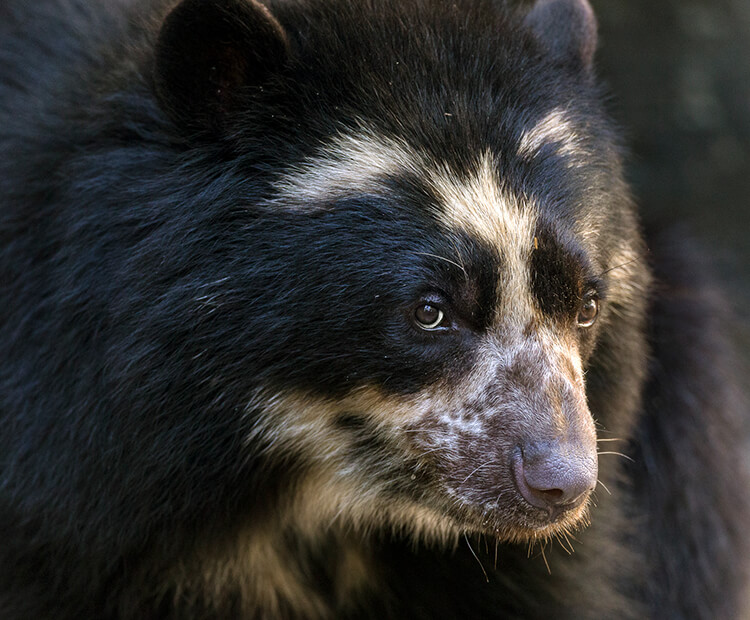
The better to see you with
The Andean bear of South America is also known as the spectacled bear for the rings of white or light fur around its eyes, which can look like eyeglasses (or spectacles) against the rest of the bear’s black or dark brown fur. These markings often extend down the chest, giving each bear a unique appearance.
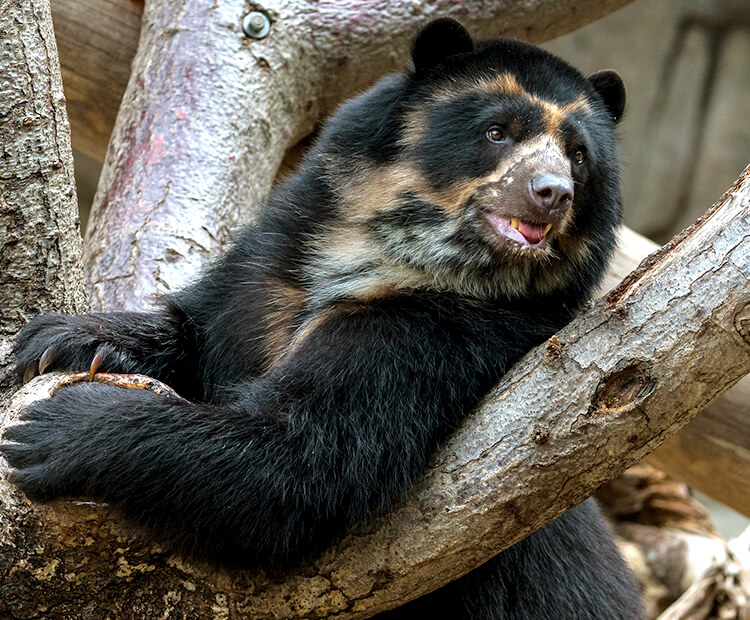
Bear in the air
Most types of bears are good at climbing trees, but Andean bears eat and sleep in them. Their long, sharp claws help them get a grip on the tree bark. Up in the forest canopy, these bears search for food like fruit, leaves, and insects. When they are tired, they gather leafy branches to make a platform bed.
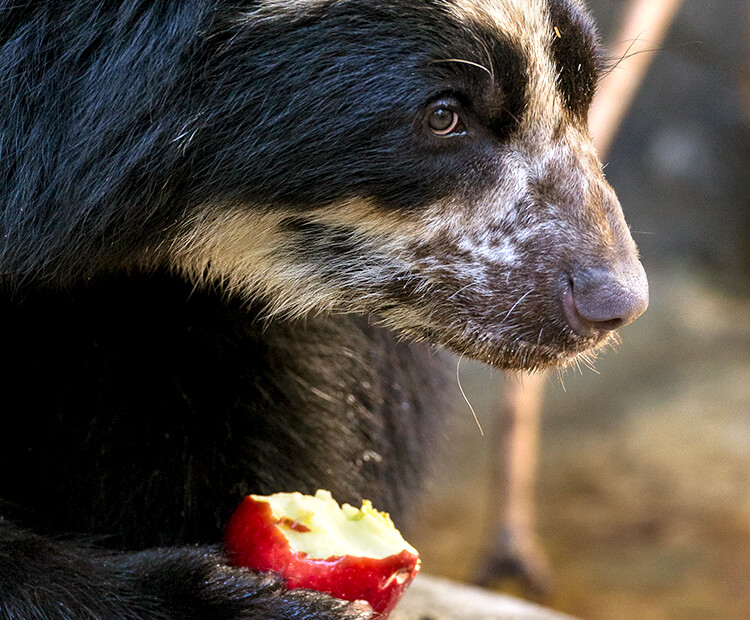
Isn't the weather nice?
Because of the tropical climate of the their range—from Venezuela to Bolivia—Andean bears do not hibernate and are active year-round. Their biggest threats come from humans, directly or indirectly.
Eating fruit helps make these bears important to the forest ecology. The fruit seeds they swallow end up in the bears’ droppings, sprout, and grow into new trees. As a bear moves from place to place, it helps the forest grow.

